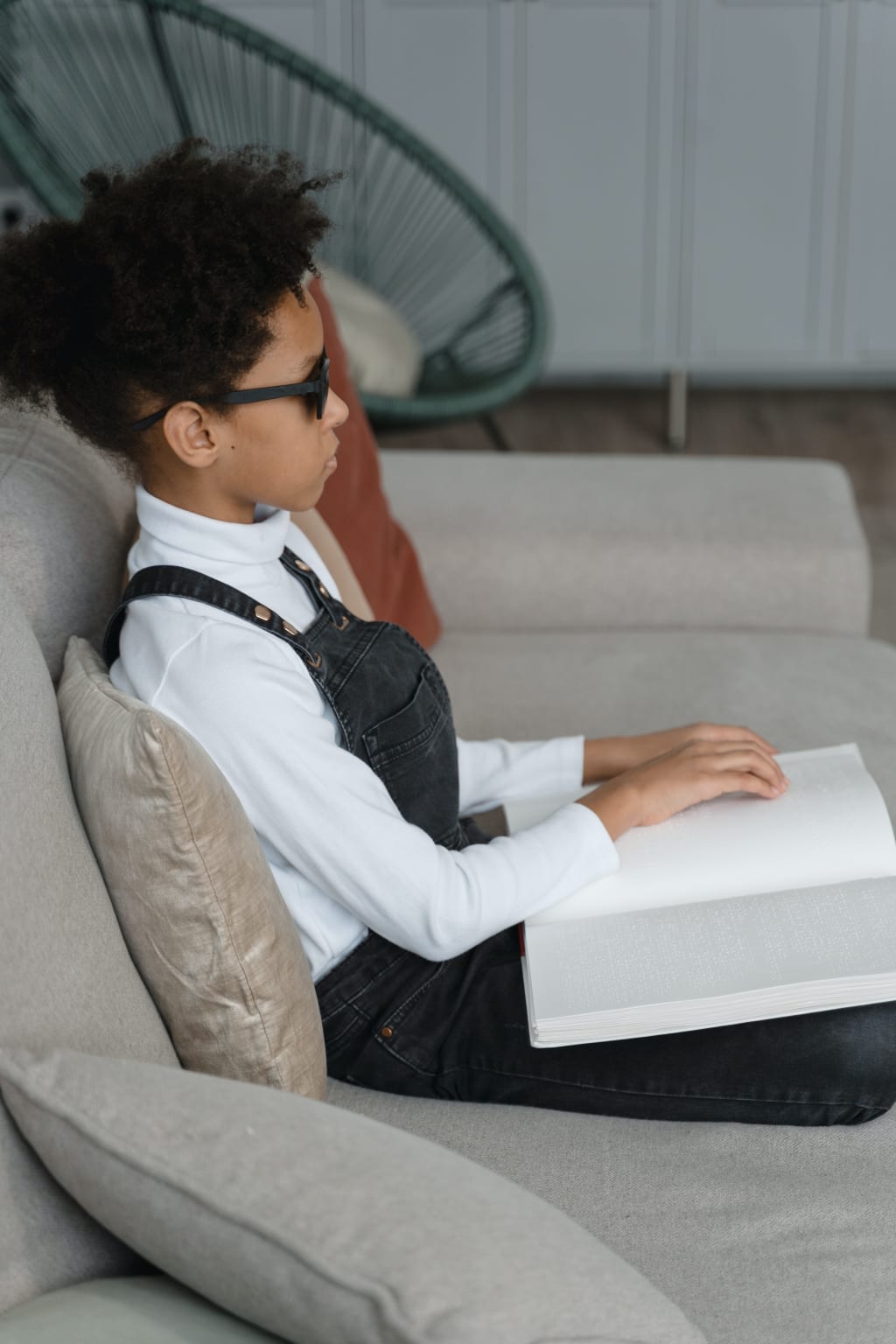Understanding What DeafBlindness Means
There are assumptions on what this means - let's bust those stereotypes

It Does Not Always Mean Totally Deaf And Totally Blind
For many people hearing the word DeafBlind conjures up Helen Keller. That's usually their only exposure to that disability.
But, like with every disability out there, DeafBlindness is on a spectrum, people can have mild hearing loss and mild vision loss, to severe hearing loss and severe vision loss. There can be mild hearing loss and severe vision loss and vice versa.
The truth is that 9 out of 10 "Blind" people do have some usable vision - blurry, light and dark, colors, center vision only, peripheral vision only, and so on.
Explaining DeafBlindness in American Sign Language (ASL)
I explain Deafblindness in ASL - with subtitles.
Helen Keller Isn't The Only Accomplished DeafBlind Person Out There!
Like I mentioned, when hearing "DeafBlind", many people think of Helen Keller who lived from 1880 to 1968 and became famous for being the first DeafBlind person to graduate with a Bachelor's degree.
She was an author, disability rights advocate, political activist and lecturer. There's been countless books and movies done about her. There's a new movie planned for release in the next few years.
But, Helen Keller isn't the only accomplished DeafBlind person out there, I want to share several more:
- Haben Girma - The first DeafBlind person to graduate from Harvard Law School. She has been on Forbes magazine's 30 under 30 list, Time magazine's TIME100 Talks, and currently works as a human rights lawyer for disability justice. You can read more about her - Haben: The DeafBlind Woman Conquered Harvard Law.
- Robert Smithdas - The first DeafBlind person to get a Master's Degree in the United States. He worked as the director of Services for the DeafBlind at the "Industrial Home for the Blind" in New York City. He was an author and poet and Barbara Walters considers their interview one of her most memorable. You can read some of his poems - City of Hearts.
- Laura Bridgeman - At eight years old, she became the first DeafBlind student at the Perkins School for the Blind (back when it was called the Perkins Institute). She was well educated and she and Perkins went on tours around the country and the world, but sadly when the fame subsided, she was quietly retired to the school to live out her days. - The Imprisoned Guest: Samuel Howe and Laura Bridgman, the Original Deaf-Blind Girl.
Those are my top three you should look up. There are countless more educators, poets, travelers, writers, and others from today and from history that have impacted the world around them.
Realistic Expectations of DeafBlindness

Too often DeafBlindness is looked upon with pity, sadness, fear, or a similar negative reaction.
I believe most of the time these reactions are coming from two places:
- Media misrepresentation
- Imagining how they'd get around and do things themselves
Let me as a DeafBlind woman address each one of these points.
Media Misrepresentation:
Usually the first exposure to DeafBlind people is Helen Keller and her story. People forget this happened back in the late 19th Century and early 20th Century. Back when people and children with disabilities were put into institutions and were considered untrainable and unwanted.
It was also before new schools, different education theories, availability of training facilities, availability of technology, and so on. So, people and the media tend to fixate on the "caretaker" mode, that Helen Keller had a caretaker with her 24/7 and this carried over to today.
I don't need a caretaker, I am the caretaker, I manage the cleaning, cooking, raised two kids, work from home, manage the finances, pay the bills, and everything else. I have been asked when I show up alone for appointments "where's your caretaker?"
So, the media needs to shift focus away from the "caretaker" spotlight, away from the "overcoming" aspect, and just focus on people just living their daily lives in a different way.
How you might feel:
Many people's first reaction to DeafBlindness is how they might feel if it happened to them personally. Being able-bodied, one can't imagine missing two very important senses. They can't imagine life without music, without television, without interactions, and so on.
This is an unfair view. As you learned earlier, many people who are DeafBlind have some vision and some hearing. I identify as a DeafBlind woman, but I am deaf with a cochlear impant and hear many environmental sounds around me and I do enjoy music very much (its speech and words that I can't understand). I am legally blind with almost no peripheral vision and distance vision. I enjoy watching television with my chair close to the tv and large captions. I am married, have two grown kids, work from home, and do stuff just like everyone else - just differently.
In case it does happen to you, don't panic, don't despair, there is help out there, here's a good article on coping with a new disability.
Then there's the few comments such as this one - and my comeback response:
Imagining How To Be Deaf Or Blind:
If you do a search on YouTube or other video platforms for people doing "deaf for a day", or "blind for a day" videos, you'd see a lot of people with earplugs screaming at each other, or people putting on blindfolds and waving around wildly".
Ask yourselves, do you actually see deaf or blind people doing this?
Of course not, people with various disabilities have the training, know-how, and accessibility equipment to get around, to communicate, and to live daily.
I often say:
"At home, I'm not disabled, it's when I go out is when society disables me"
What I mean is I have the ability to get around on my own, I know where everything is, I have all my accessibility needs set up at home.
Out in public I get around with a white cane, my GPS on my phone, speech to text app for communication, and so on. Yet, when I'm travelling to a known destination, I deal with strangers, with good intentions, come up and:
- Grab my cane "Oh, you're about to hit that wall!" - I was trying to locate the wall to get my bearings.
- Grab me without explanation and walk me swiftly across the street, smile, and abandon me on the other side. I didn't want to cross the street!
- Pass me a note asking if I can read and write. I wrote back "no", only for them to get sad and walk away. Yeah.
- Completely ignore me when I'm trying to ask something
- Turn white as a ghost when I say I'm DeafBlind. It's not contagious BTW.
Okay, these are just some of the weird instances here, to give y'all a laugh.
To learn more about DeafBlindness I wrote this article "10 Things DeafBlind People Want You To Know". Seek out DeafBlind creators on Instagram, YouTube, TikTok and learn from them.
The best learning is done directly from the source, right?
About the Creator
Tracy Stine
Freelance Writer. ASL Teacher. Disability Advocate. Deafblind. Snarky.
Enjoyed the story? Support the Creator.
Subscribe for free to receive all their stories in your feed. You could also pledge your support or give them a one-off tip, letting them know you appreciate their work.






Comments
There are no comments for this story
Be the first to respond and start the conversation.